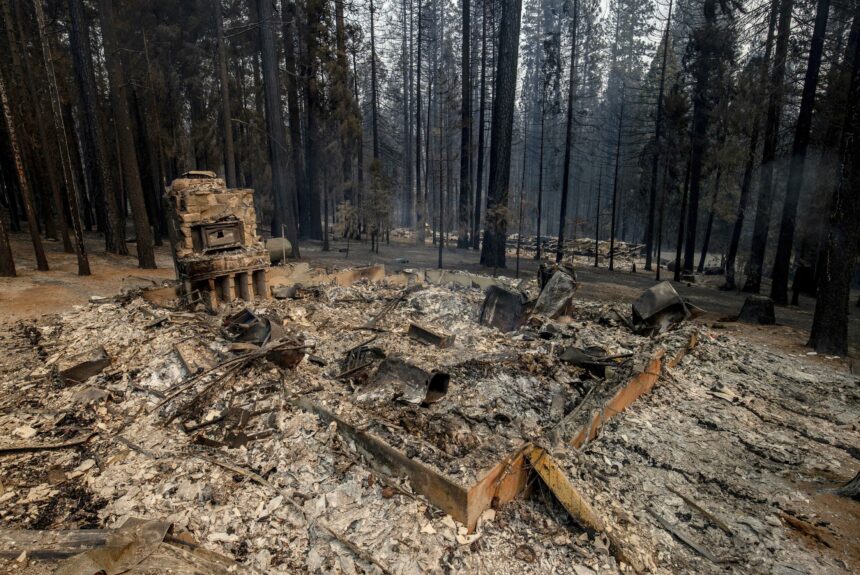Now that the so-called “Inflation Reduction Act (IRA)” is signed into law, permitting reform is top of mind in Washington. While the passage of the IRA included billions of dollars in new spending and taxes, it has given regulatory reform advocates the opportunity to modernize America’s antiquated permitting system. Although much of the permitting conversation has centered around energy infrastructure, the moment also presents a rare opportunity to streamline processes that stymie critical conservation projects like forest restoration.
Modern-day wildfires burn hotter and larger than fires of the past in large part because of a century of fire suppression. This suppression policy distorted natural fire cycles and made forests less resilient to wildfire. Fire is a key component of a forest’s ecosystem and more frequent, less intense fires facilitate forest regeneration. By suppressing these types of fires, fuels have built up and now feed larger and hotter wildfires that threaten forest ecosystems and the communities around them.
>>>READ: The Climate Cart Before the Permitting Horse
In 2021, one such fire swept through the Eldorado National Forest in the Sierra Nevada. Grizzly Flats, a small mountain community neighboring the national forest, lay in the Caldor Fire’s path.
For decades, the Grizzly Flats community had known wildfire was a threat. Community volunteers had raised money to fund restoration projects that would make the forest land they managed more resilient to fire. Projects like mechanical thinning and prescribed fire would reduce the fuel loads that fires can consume, making the inevitable wildfire less severe and easier to manage.
The forest lands managed by the federal government, however, remained a threat. The Forest Service was well aware of the risk and had committed to treating 15,000 acres in what became known as the Trestle Forest Health Project. But increasing the pace and scale of that work proved impossible.
Three decades after its initial warning, the Forest Service planned to complete its forest restoration work to protect the community of Grizzly Flats by 2032. The Caldor Fire would destroy the community long before the work was completed. According to an investigative report by CapRadio, the delay was “due to a complex web of regulatory delays, logistical challenges, and resource shortages.”
The fate of Grizzly Flats offers a cautionary tale for forest managers and mountain communities. Exhaustive environmental reviews and litigious environmental activists delay, and sometimes prevent, urgently needed forest restoration projects. These delays worsen the wildfire crisis and put communities like Grizzly Flats at risk.
These bureaucratic delays can be scandalously long. On average a mechanical treatment takes 3.6 years for work to actually begin after the environmental review process has been initiated. For a prescribed burn, the process is even longer at an average of 4.7 years. And when a project requires a more stringent review, known as an Environmental Impact Statement under the National Environmental Policy Act (NEPA), the averages tick up to over five and seven years, respectively. Throw litigation into the mix, and critical projects can be delayed by decades or more.
>>>READ: Why are Wildfires Getting Worse? Regulations Are Partly to Blame
Streamlining this process is absolutely critical in order to stem the wildfire crisis. One solution would be to expand what types of projects qualify for a “categorical exclusion” (CE), the least stringent type of environmental review under NEPA. Expanding CEs could shave an average of two years off of a project’s timeline. Considering the fate of Grizzly Flats, every year counts.
Litigation must also be addressed. The mere risk of litigation creates delays by motivating the Forest Service to “litigation proof” its projects, adding significant time and expense. Establishing a shorter deadline for when lawsuits can be filed could be a good place to start. Currently, lawsuits can be filed up to six years after a project is approved. Significantly shortening this timeframe would remove much of the uncertainty that delays these projects.
Currently, the conversation around permitting reform has focussed on energy with Republicans hoping to free up fossil fuel projects and Democrats acknowledging that NEPA slows the expansion of renewables. But in the context of conservation, streamlining the environmental review process for forest restoration work is urgently needed. Over six million acres have burned this year alone, putting lives, property, and ecosystems at risk. With an 80 million acre backlog in need of restoration, the Forest Service needs all the help it can get to address the risk of catastrophic wildfire. If permitting reform is narrow in scope and fails to address the systemic problems facing not just energy infrastructure but conservation, it will be a huge missed opportunity.
To prevent the tragedy of Grizzly Flats from repeating itself across the West, policymakers must untie the hands of our forest managers and make it easier to conduct critical forest restoration work in a timely manner. Reforms to the environmental review process can increase the pace and scale of restoration efforts, making our forests more resilient, restoring healthier fire cycles, and helping prevent what happened to Grizzly Flats from being repeated across the West in the years to come.
Kat Dwyer is the marketing & media manager for the Property and Environment Research Center, the national leader in market solutions for conservation. She is also a contributor to C3 and Young Voices, and co-host of the Whiskey Bench podcast. Follow her on Twitter @KatJDwyer.
The views and opinions expressed are those of the author’s and do not necessarily reflect the official policy or position of C3.
